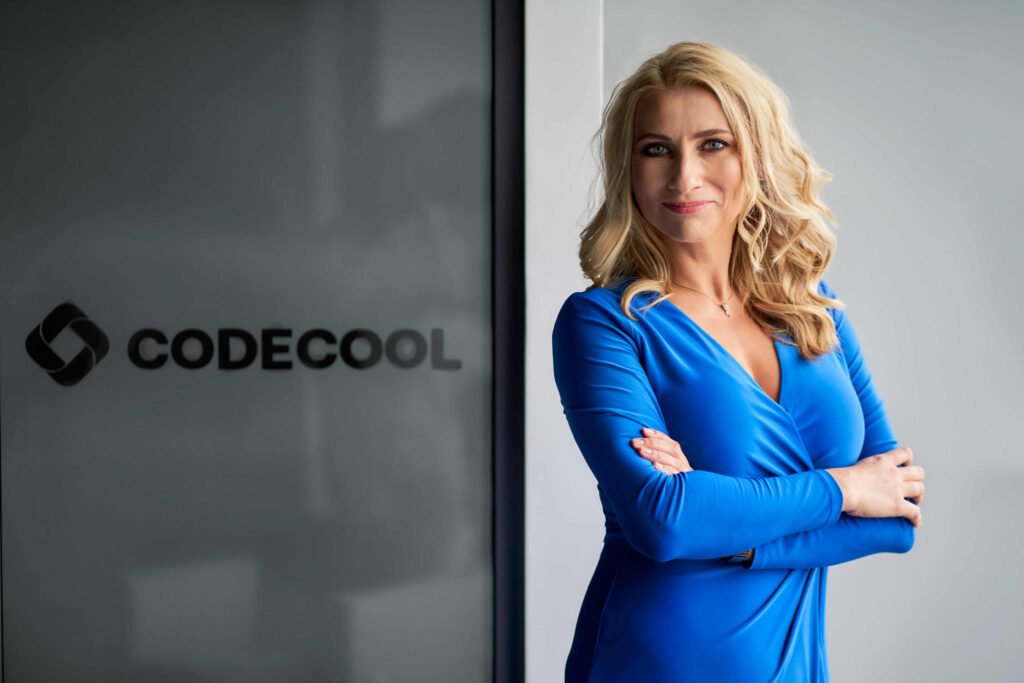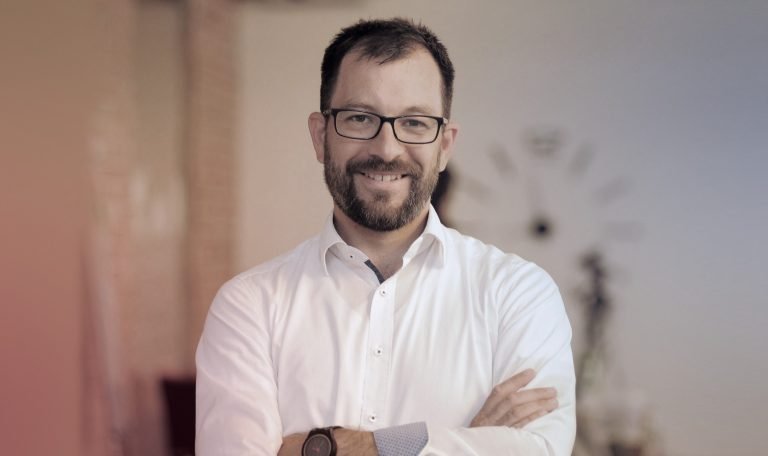In this blog post series we’re sitting down for a chat with people making the Codecool vision happen. Please meet Olga Zelent, Country Manager of Codecool Poland.

If you want to meet inspiring people, Codecool is a great place to be. Everyday we meet hundreds of smart, ambitious and cool students that study with us to change their careers and our shared digital future. And we meet innovative, great leaders with a vision from hiring companies, that employ our students to build a digital future. But it’s not only our students and partner company leaders who inspire us. We also make sure to work with colleagues that are equally amazing, and make the Codecool mission and vision come to life.
Last time we talked to Sigrid Hantusch-Taferner, Country Manager of Codecool Austria. Missed the article? Make sure to catch up now.
This time we had the chance to sit down with another inspiring Codecool leader about her current goals, challenges and outlook on the future. We’re super excited and proud to introduce you Olga Zelent, Country Manager of Codecool Poland!
Olga, how would you introduce yourself, if you were not allowed to mention your work? 🙂
I’m a bookworm, a sports-addict, a theatre junkie and a yogini ![]() I respect all beings, and strongly support equality, especially equality of women in all walks of life (and also in business, IT and boards). I am totally in love with Italy, especially the southern part of this stunning “paese”. I am super happy to be a mom of almost adult teenager Hubi, and sweet doggie Chico.
I respect all beings, and strongly support equality, especially equality of women in all walks of life (and also in business, IT and boards). I am totally in love with Italy, especially the southern part of this stunning “paese”. I am super happy to be a mom of almost adult teenager Hubi, and sweet doggie Chico.
What is your work now actually? What are you responsible for?
As a country manager, I’m responsible for the general management of the local business activities of Codecool in Poland. My main duties include scaling up the Polish branch. As always, people are the most important for me so I strongly focus on my team’s wellbeing. Motivating the team and working together is crucial to meet our ambitious targets.
My job in the end is to make sure we attract more and more talented students, and partner up with more and more corporate partners in Poland, who focus on innovation and digitalisation, looking to either grow or re-skill their teams.
What did you do before?
Originally I’m coming from a totally different area: I am a lawyer by education and I have a background in the pharmacy market. After learning everything I could about the field in sales, operational and general management positions for 10 years, I felt I needed a change. I found information technology and the idea of taking part in shaping our digital future super exciting, so I decided to start anew in this new area. And I never looked back since.
Why did you decide to come work for Codecool?
Before joining Codecool, I already gained experience in IT at a big digital service provider, and also as a scaling-up expert. I spent some years working for one of our competitors, another Polish programming school as well. I made my decision to join Codecool in July because I saw that my experience could come just at the right time for the local business, and also because the Codecool mission really impressed me.
I wanted to be part of changing people’s lives for the better by providing them quality, accessible IT education and helping them land their first tech jobs. I already knew the market, I knew what it meant to grow the company from a start-up to a scale-up, and I was excited that I could contribute to closing the digital skill gap in Poland.

What's the biggest goal that you set out for yourself in Codecool?
We’re working on making Codecool the first choice for people who want to learn coding really well, but without having to study for long years. Codecool is more than a bootcamp and better than a university, and we want to grow it bigger to bring this ground-breaking type of programming education closer to even more people and companies.
I couldn’t do all this without a great team, so my first task here was to strengthen the stability and motivation of the local team. Our next, shared goal is to make Codecool a leader in the alternative tech education market in Poland.
What do you see as your biggest challenge currently?
Our biggest challenge on the market today is to show that our offers are not empty promises, but true propositions. We offer a real job guarantee, actual post-payment options, and high quality, project-based education for our students. And we offer quality candidates with agile project experience and advanced programming and soft skills for our partner companies. Our competitors are fast to repeat all our promises, but they fail delivering on them. The result is a loss of trust impacting the whole market, and Codecool, too, obviously.
We are doing our best to show Polish people and companies that we can be trusted to deliver on all our promises and make no compromises about keeping our end of a learning or partnership agreement. I know it all sounds too good to be true, but we really managed to come up with a unique business model that works, and when we promise something, then we truly mean what we say.
What trends do you see in the world that impact your work at Codecool most?
We see that the pandemic brought a significant change of attitude in big companies. They’ve started to see more value in re-skilling and up-skilling their existing workforce instead of letting go employees and hiring new ones to grow the digital skillset of their organisations. They are now trying to build stable, loyal, strong in-house digital teams by retaining and motivating their best people, as well as enriching their skillsets through quality tech training.
Codecool is not only about open trainings, we can be valuable allies in building digital skills in-house. We have a solid track record of quality corporate re-skilling and up-skilling training programs, as well as full-scale internal academy solutions. Our courses are always tailor-made to the exact business needs of our partners, because every organisation and every digital strategy is different.
Why do you think hiring companies should partner up with Codecool?
We’re quick, flexible and effective. We offer great junior programmers that we ourselves would be happy to work with. Who have the motivation and skills to deliver value in the jobs from day one as proactive members of any team. The hiring process of Codecoolers is fast and painless, too, while our corporate solutions are tailored to our partner’s specific needs and exact requirements. Internal academies powered by Codecool have a proven track record of re-skilling and up-skilling existing employees to work together in highly effective digital teams.
Where do you think Codecool is going in the short and long term?
In the short term, we’re becoming the first choice for more and more people thinking about a career change to IT, and for more and more companies with ambitious digital strategies and a mature approach to tech talent recruitment and digital skill development.
In the long term, we’re growing into being the leading programming school, and digital educational and hiring partner in Europe.
How do you see our shared digital future?
I see a bright future with our lives, economy and markets entirely built on digital solutions. And I see teams of digitally skilled people building these solutions in cooperation, using not only advanced technology, but also strong soft skills for a better, fairer, more inclusive digital future.







